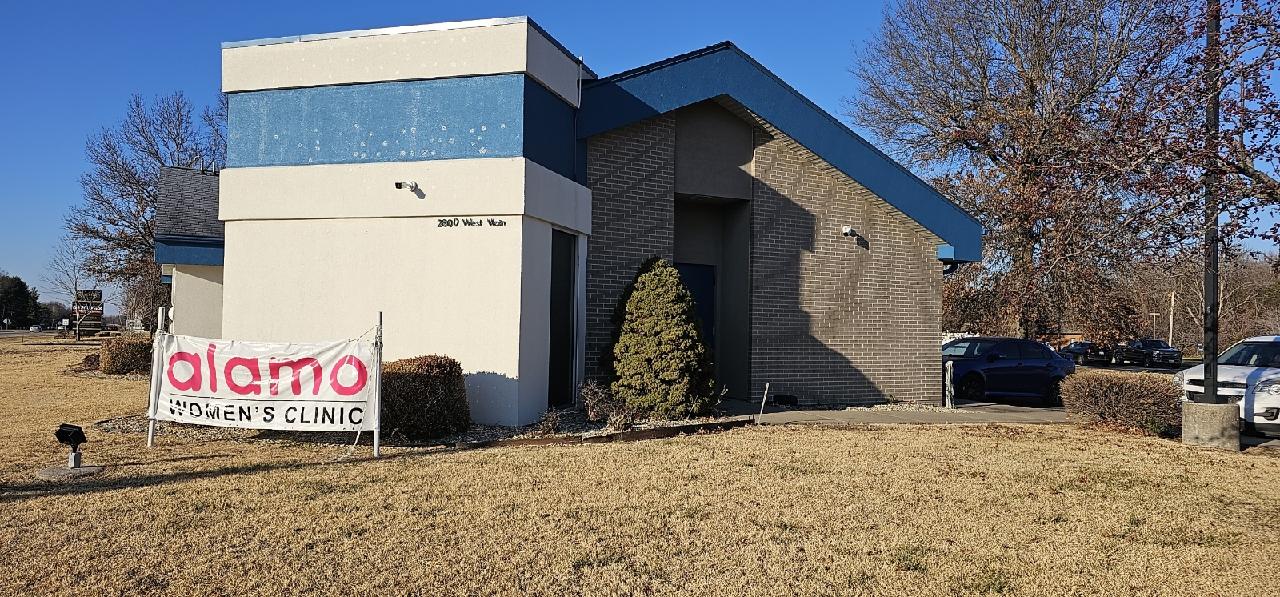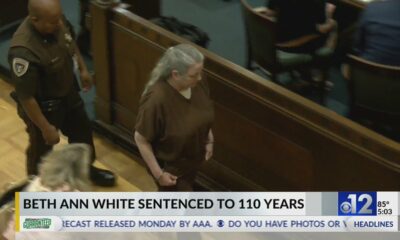Mississippi Today
Mississippi doesn’t see births spike from abortion ban, but unwanted pregnancies increase

Mississippi birth numbers are roughly the same as last year, despite the state health department predicting at least 5,000 a year more from a nearly total abortion ban.
However, analysis of data shows that unwanted or unplanned pregnancies increased in every ban state – with Mississippi having the second-highest estimated increase.
Mail-order abortion pills and the opening of new abortion clinics aimed at serving those in red states are likely among the reasons Mississippi didn't see the large spike in births state officials expected. Still, diminished accessibility meant that the ban prevented about one-fourth of Mississippi women who might have otherwise sought an abortion from attaining one, according to recent research published in November by the Institute of Labor Economics.
Birth numbers vary from year to year based on a variety of factors, and do not, therefore, provide a complete picture on their own of the effects the Dobbs Supreme Court decision had on fertility – the number of children born to women of reproductive age. The study uses a statistical method called Synthetic Difference-in-Differences to compare ban states to selected non-ban states post-Dobbs.
“Basically, what it does is it lets us compare changes in births in states enforcing total bans to changes in births in states that are a good set of controls for what would have happened if total bans hadn't been enforced,” explained Caitlin Myers, a professor of economics at Middlebury College in Vermont and an author of the study.
In order to be a meaningful comparison, the non-ban states chosen for the control group are ones that trended similarly to the ban states pre-Dobbs. This comparison can then be used to estimate how many more births occurred in ban states than would have in the absence of a ban.
The largest estimated increases were in states that had the largest increases in driving distances to abortion clinics. Texas, which had a 453-mile increase, saw a 5.1% increase in births. Mississippi, where driving distance increased by 240 miles, saw a 4.4% increase in births.
Births have been on a steady decline in Mississippi since 2007. That decline has slowed in the past year, according to Mitchell Adcock, executive director of the Center for Mississippi Health Policy.
“Since 2022, when the Mississippi law related to the US Supreme Court's Dobbs decision was implemented, the decline in Mississippi births in 2023 has slowed,” Adcock explained. But, he said, “it will take more time before the impact of the Dobbs decision on birth rates in Mississippi can be determined.”
While the slower declining rate of births cannot yet be directly attributed to Dobbs, there is compelling evidence that it played a role. The data shows that the group of ban states and the set of controlled states trended extremely similarly – right up until the abortion bans began to be enforced.
“And then we see the births diverge,” said Myers. “So for it to be something other than Dobbs and the bans that are increasing those births, you'd have to believe that something else happened that wasn't an abortion ban, and it happened at the same time, in all 13 states, and not at all in these controlled states that the model picked. Which is pretty hard to believe.”
While births likely did increase in Mississippi relative to what they may have been in the absence of a ban, they did not increase to the heights state officials expected.
Mississippi officials likely based their 5,000 more births estimate on the number of resident abortions that took place in past years, Myers said. In 2020, the number of Mississippi resident abortions – those occurring in and out of state – was 5,760.
State Health Officer Dr. Daniel Edney said “we've known from the beginning it wouldn't be a one-to-one [correspondence], one induced termination equals one live birth … there are a lot of variables that are ongoing.” Yet, the department predicted in a Sept. 28, 2022 hearing that the state would see an influx of at least 5,000 extra births they were not prepared to handle.
“It really sounds like what they were assuming was that the ban would prevent most people in Mississippi who wanted abortions from getting them,” Myers said. “And that is not a realistic assumption. A lot of people from Mississippi are traveling and people will also self manage abortions.”
The 26.9% of Mississippi abortion seekers the study estimated were not able to travel or self manage their abortions in the wake of Dobbs are likely lower-income people unable to afford the trip out of state, or those in rural maternity care deserts who didn't find out they were pregnant until well into their pregnancy.
What's more is that the number of in-state abortions has plummeted to nearly zero – despite the fact that Mississippi's abortion ban has two exceptions: to protect the life of the mother, and cases where the pregnancy was caused by rape and officially reported to law enforcement.
Cases like Ashley, the 13-year-old Delta girl TIME magazine wrote about who was raped and forced to carry her baby to term, show that the exceptions are largely theoretical. Lack of education and fear of legal consequences are what render the exceptions practically meaningless, according to Tyler Harden, the Mississippi state director of Planned Parenthood Southeast.
“A lot of people aren't aware of the exceptions,” Harden said. “We've witnessed lots of misinformation campaigns targeted at people who need abortion access … and even providers sometimes giving misinformation to their patients because they don't understand what they can and can't do legally.”
In 2023, there were only four in-state abortions in Mississippi.
Aid Access, the only online telemedicine service supplying medication abortion via mail in the U.S., is currently getting about 250 requests each month from Mississippians, according to Aid Access Founder Dr. Rebecca Gomperts.
Mississippi had the second largest increase in Aid Access requests from pre- to post-Dobbs. Aid Access offers a combination of Mifepristone and Misoprostol for first trimester abortions up to 10 weeks. Since shipping takes one to five days for all 50 states, a patient should be less than nine weeks when ordering the medication.
For those who are more than nine weeks pregnant, the closest abortion clinic to Jackson is the Alamo Women's Clinic in Southern Illinois, 425 miles away. The clinic was opened by father-daughter duo Alan Braid and Andrea Gallegos in November 2022, after the Dobbs ruling forced Braid and Gallegos to move their Texas and Oklahoma clinics to New Mexico and Illinois.
“We've officially been open a year and we're doing exactly what we thought being in this location would do,” Gallegos said about her Illinois clinic. “We see patients from every surrounding ban state every day.”
Mississippians accounted for 12% of the 4,551 patients the Alamo clinic has served in the last year. At 576 abortions, that's nearly six times as many Illinois patients the location served.
Those who can make the journey do – and Gallegos says she's amazed at just how many do. But, she says, there will always be a fraction of people for whom that kind of travel is unfeasible.
“I think it's a shame that abolishing Roe has basically made geography a privilege when it comes to accessing abortion,” she said.
It can be easy to forget the situation most abortion seekers are in that leaves a significant number of them unable to cover the cost and surmount the time challenges of increased driving distances. Three quarters of abortion patients are low-income, 59% are already parenting, and 55% report facing a disruptive life event, such as losing a job, breaking up with a partner, or getting evicted.
“Sometimes I'll present estimates of effects of driving distance,” Myers said, “and economists will be like ‘well my gosh, this is such an important life event, with such huge consequences, everybody should just find a way out, right?'” But she explained, “look at the situation that people are in when they seek abortions … it's not so implausible that around a quarter of them aren't able to figure out a way to mail order medication or to drive more than 200 miles one way to Southern Illinois.”
This article first appeared on Mississippi Today and is republished here under a Creative Commons license.
Did you miss our previous article…
https://www.biloxinewsevents.com/?p=320579
Mississippi Today
PSC axes solar programs in light of EPA funds, advocates file lawsuit
Advocates from some of the state's conservation groups — such as Audubon Delta, Mississippi Sierra Club and Steps Coalition — spoke out Wednesday against a recent decision by the Mississippi Public Service Commission to suspend several solar programs, including “Solar for Schools,” less than two years after the previous commission put them in place.
“This is particularly disappointing because the need for these incentives in the state of Mississippi is significant,” said Jonathan Green, executive director of Steps Coalition. “Energy costs in the South, and in particular the region known as the Black Belt, are higher than those in other parts of the country for a number of reasons. These regions tend to have older energy generation infrastructure, and housing that has not been weatherproofed to modern standards. For many low- to moderate-income residents in the state of Mississippi, energy burden and energy insecurity represent real daily economic challenges.”
The PSC voted 2-1 at its April docket meeting to do away with the programs, reasoning in part that new funds through the Inflation Reduction Act would be available to the state. About 10 days later, the Environmental Protection Agency awarded $62 million to the state, through the Hope Enterprise Corporation, to help low-income Mississippians afford adding solar power to their homes. The funds are part of the Biden Administration's Solar for All program, one of the several recent federal initiatives aimed at reducing greenhouse gas emissions.
The PSC decision ended three programs the previous commission put in place to encourage wider adoption of solar power through the two power companies it regulates, Entergy Mississippi and Mississippi Power: “Solar for Schools,” which allowed school districts to essentially build solar panels for free in exchange for tax credits, as well as incentives for low-income customers and battery storage.
Last Friday, the Sierra Club filed lawsuits in chancery courts in Hinds and Harrison counties against the commission, arguing the PSC broke state law by not providing sufficient reasoning or public notice before making the changes. Advocates also argued that new funding going to Hope Enterprise won't go as far without the PSC's low-income incentives.
The programs were part of a 2022 addition to the state's net metering rule, a system that allows homeowners to generate their own solar power and earn credits for excess energy on their electric bills. Mississippi's version is less beneficial to participants than net metering in most states, though, because it doesn't reimburse users at the full retail cost. Mississippi's net metering program itself is still in tact.
Northern District Commissioner Chris Brown said that, while he supported efforts to expand solar power, he didn't think programs that offer incentives from energy companies were fair to other ratepayers.

“It's the subsidy that we take issue with,” Brown said at the meeting. “It's not the solar, it's not the helping the schools. We just don't think it's good policy to spread that to the rest of the ratepayers.”
Brown and Southern District Commissioner Wayne Carr voted to end the programs, while Central District Commissioner De'Keither Stamps voted against the motion. All three are in their first terms on the PSC. Brown's position is in line with what the power companies as well as Gov. Tate Reeves have argued, which is that programs like net metering forces non-participants to subsidize those who participate.
Robert Wiygul, an attorney for the Mississippi Sierra Club, countered that argument during Wednesday's press conference, saying that net metering actually helps non-participants by adding more power to the grid and reducing the strain on the power companies' other infrastructure. Moreover, he said, the PSC hasn't offered actual numbers showing that non-participants are subsidizing the program.
“Look, if the commission wants to talk about that, we are ready to talk about it,” Wiygul said. “But what we got here is a situation where these two commissioners just decided they were going to do this. We don't even know what that claim is really based on because it hasn't been through the public notice and hasn't been through the public comment process.”
While no schools had officially enrolled in “Solar for Schools,” which went into effect in January of last year, Stamps told Mississippi Today that there were places in his district getting ready to participate in the very programs the PSC voted to suspend.

“My issue was we should have talked to the entities that were going through the process to (understand what they were doing) to participate in the programs before you eliminate the programs,” he said.
Several school districts in the state are already using solar panels thanks to funding from a past settlement with Mississippi Power. Officials there told Mississippi Today that the extra power generated from the panels has freed up spending for other educational needs. During the public comment period for the 2022 net metering update, about a dozen school district superintendents from around the state wrote in to support the initiative. Ninety-five school districts in the state would have been eligible for the program because they receive power from Entergy Mississippi or Mississippi Power.
Former commissioner Brent Bailey, who lost a close reelection bid in November to Stamps, was an advocate for the schools program that the PSC created while he was there. At the April docket meeting, he pleaded with the new commission to reconsider, arguing that the new federal funding won't have the same impact without those programs.
“My ask is to at least give this program a chance, see where it goes, and hear from stakeholders that have participated,” Bailey said. The solar programs, he added, weren't just about expanding renewable energy, but taking advantage of a growing economy around solar power as well: “We can just stand by and watch it go by, or we can participate in this and bring economic development to the state.”
This article first appeared on Mississippi Today and is republished here under a Creative Commons license.
Crooked Letter Sports Podcast
Podcast: In or out (of the NCAA Tournament)?

College baseball's regular season is in its last week, which means baseball bracketology is a popular activity. State needs to finish strong to become a Regional host. Southern Miss probably has already punched its ticket as a 2- or 3-seed. Ole Miss, playing its best baseball presently, needs victories, period. Meanwhile, the State High School softball tournament is this week in Hattiesburg, and the state baseball tournament comes to Trustmark Park in Pearl next week.
Stream all episodes here.
This article first appeared on Mississippi Today and is republished here under a Creative Commons license.
Did you miss our previous article…
https://www.biloxinewsevents.com/?p=358148
Mississippi Today
Reeves again blocks funds for LeFleur’s Bluff project in Jackson
For the third consecutive year legislative efforts to direct state money to renovate LeFleur's Bluff in Jackson have been stymied, thanks in large part to Gov. Tate Reeves.
Earlier this week, the Republican governor vetoed a portion of a bill that directed $14 million to the office of Secretary of State Michael Watson for work on developing and improving a nature trail connecting parks and museums and making other tourism-related improvements in the LeFleur's Bluff area.
It is not clear whether the Legislature could take up the veto during the 2025 session, which begins in January, though, that's not likely. The Legislature had the option to return to Jackson Tuesday to take up any veto, but chose not to do so.
Of the project, Watson said, “Our office was approached late in the session about helping with a project to revitalize LeFleur's Bluff. As Mississippi's state land commissioner, I was more than happy to help lead this effort not just because it's a natural fit for our office, but also because I believe Mississippi needs a thriving capital city to retain our best and brightest. Investing state funds in state property on a project to enhance the quality of life in Jackson makes good sense.
“Unfortunately, some only support it when it equates to campaign contributions. Sadly, through the line-item veto of the appropriation, Mississippians will once again wait another year for the opportunity to benefit from state investments for the greater public good.”
Various groups, such as representatives of the Mississippi Children's Museum and many other community leaders have been working on the project for years. The area already is the home of the Children's Museum, Museum of Natural History, Mississippi Sports Hall of Fame and Museum and a state park.
The issues with LeFleur's Bluff first arose in 2022 when Reeves vetoed a $14 million appropriation that in part was designed to redesign and create a new golf course in the area. Previously, there had been a nine-hole, state-owned golf course operated by the Department of Wildlife, Fisheries and Parks at LeFleur's Bluff State Park.
In 2022, the LeFleur's Bluff project was one of literally hundreds of projects funded by the Legislature – many of which was tourism projects like LeFleur's Bluff. The governor only vetoed a handful of those projects.
When issuing the LeFleur's Bluff veto, Reeves said the state should not be involved in funding golf courses.
Then last year $13 million was directed to the Department of Wildlife, Fisheries and Parks to spend on the LeFleur's Bluff project. But legislative leaders said state money would not go toward a golf course.
Lawmakers opted to transfer the project to the Secretary of State's office late in the 2024 session, apparently in part because they felt the Department of Wildlife, Fisheries and Parks had not made enough of an effort to begin the project.
Lynn Posey, executive director of Wildlife, Fisheries and Parks, said that before moving forward with the project, “We felt like we needed to do engineering work and see what the situation was. We never got a chance to move forward” because the Legislature redirected the money.
Posey said an engineer's report was needed because “it is a unique piece of land.” He said much of the land is prone to flooding.
He said before that work could begin the Legislature switched the authority to the Secretary of State's office. Posey was appointed to his current position by Reeves, whose office had no comment on the veto.
Lt. Gov. Delbert Hosemann said after the governor's veto, “Projects like the LeFleur's Bluff development are critical to the Capital City, the wider metropolitan area, and our state. Public parks add to the quality of life for our citizens. I am hopeful the individuals involved in this project, including those at the Mississippi Children's Museum, will continue their work to improve this state asset.”
While the Constitution instructs the governor to provide to the Legislature a reason for any veto, Reeves did not do so this year when vetoing the money going to the Secretary of State's office.
On Monday, the governor also vetoed a portion of another bill dealing with appropriations for specific projects. But in this case, the veto was more of a technicality. The bill was making corrections to language passed in previous sessions. In that language were five projects the governor vetoed in 2022.
The language, as it was written, would not have revived those previously vetoed projects, the governor said. But Reeves said he vetoed the five projects out of caution. He did the same in 2023 when those five projects, which included money appropriated in 2022 for the Russell C. Davis Planetarium in Jackson, were carried forward in a bill also making corrections to previously passed legislation.
This article first appeared on Mississippi Today and is republished here under a Creative Commons license.
-
SuperTalk FM3 days ago
Martin Lawrence making 3 stops in Mississippi on comedy tour
-
Our Mississippi Home1 day ago
Beat the Heat with Mississippi’s Best Waterparks
-
Mississippi News7 days ago
Louisville names street after a former high school
-
Mississippi Today5 days ago
Lawmakers may have to return to Capitol May 14 to override Gov. Tate Reeves’ potential vetoes
-
Mississippi News6 days ago
Man arrested for allegedly breaking into home, robbing owner
-
SuperTalk FM6 days ago
Couple arrested after husband received unemployment benefits while in prison
-
Our Mississippi Home2 days ago
Charlie’s U-Pik: Opening Soon for the Summer Season
-
Mississippi News Video4 days ago
Local dentists offer free dental care in Amory





































